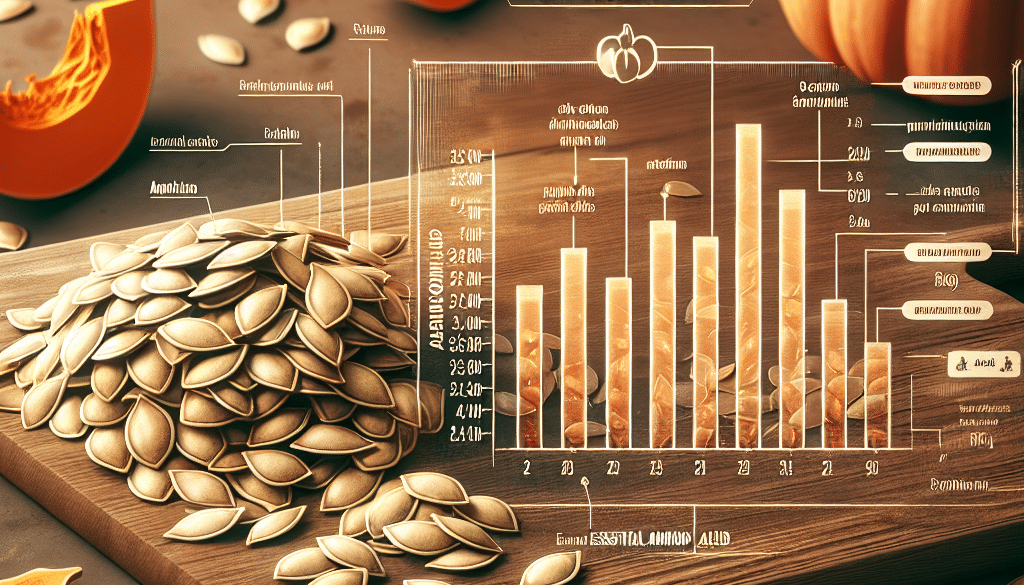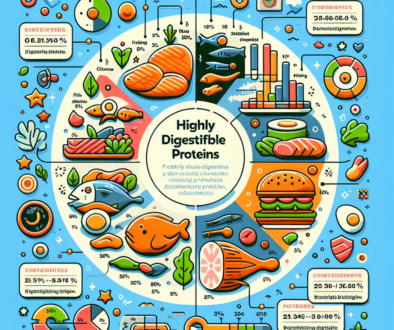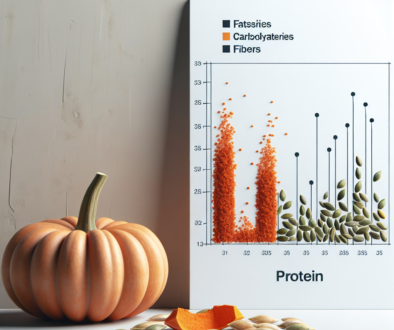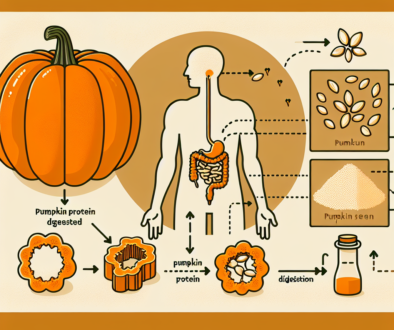Are Pumpkin Seeds a Complete Protein
-
Table of Contents
Are Pumpkin Seeds a Complete Protein?
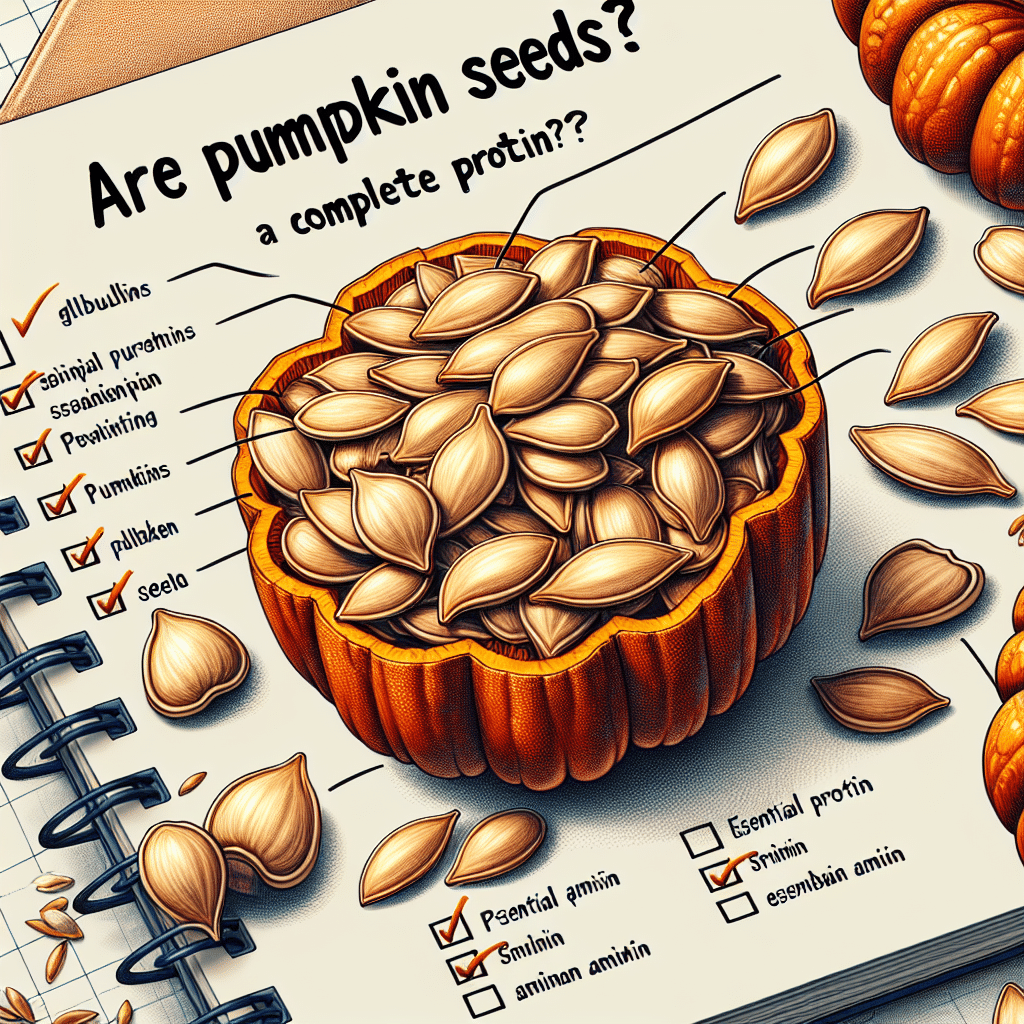
Pumpkin seeds, also known as pepitas, are a popular snack and ingredient in various dishes. They are not only delicious but also packed with essential nutrients. One question that often arises is whether pumpkin seeds can be considered a complete protein. In this article, we will explore the nutritional profile of pumpkin seeds and determine if they can provide all the essential amino acids needed for a complete protein.
Nutritional Profile of Pumpkin Seeds
Pumpkin seeds are a rich source of various nutrients, including protein, healthy fats, fiber, vitamins, and minerals. A 1-ounce (28 grams) serving of pumpkin seeds contains approximately:
- Protein: 7 grams
- Fat: 13 grams
- Fiber: 1.7 grams
- Vitamin K: 18% of the Recommended Daily Intake (RDI)
- Phosphorus: 33% of the RDI
- Manganese: 42% of the RDI
- Magnesium: 37% of the RDI
- Zinc: 14% of the RDI
As we can see, pumpkin seeds are a nutrient-dense food that can provide several health benefits. However, to determine if they are a complete protein, we need to examine their amino acid composition.
Amino Acid Composition of Pumpkin Seeds
Amino acids are the building blocks of proteins, and there are 20 different types. Nine of these amino acids are considered essential because the body cannot produce them and must obtain them from the diet. To be considered a complete protein, a food source must contain all nine essential amino acids in adequate amounts.
While pumpkin seeds are a good source of protein, they do not contain all nine essential amino acids in sufficient quantities to be considered a complete protein. However, they do contain a good balance of amino acids and can still be a valuable addition to a balanced diet.
The amino acid profile of pumpkin seeds is as follows:
- Arginine: 1.6 grams
- Glutamic acid: 1.4 grams
- Leucine: 1.2 grams
- Aspartic acid: 1.1 grams
- Phenylalanine: 0.9 grams
- Valine: 0.8 grams
- Serine: 0.7 grams
- Glycine: 0.7 grams
- Isoleucine: 0.6 grams
- Threonine: 0.6 grams
- Alanine: 0.6 grams
- Tyrosine: 0.5 grams
- Proline: 0.5 grams
- Lysine: 0.4 grams
- Methionine: 0.3 grams
- Histidine: 0.3 grams
- Cysteine: 0.2 grams
- Tryptophan: 0.1 grams
While pumpkin seeds do not provide all the essential amino acids, they are particularly high in arginine, glutamic acid, and leucine. These amino acids play important roles in various bodily functions, including muscle growth and repair, immune function, and hormone production.
Combining Pumpkin Seeds with Other Protein Sources
Although pumpkin seeds are not a complete protein on their own, they can be combined with other protein sources to create a complete amino acid profile. By pairing pumpkin seeds with foods like legumes, grains, or dairy products, you can ensure that you are getting all the essential amino acids your body needs.
For example, combining pumpkin seeds with black beans or quinoa can create a complete protein meal. This is especially important for individuals following a vegetarian or vegan diet, as plant-based protein sources often lack one or more essential amino acids.
The Benefits of Pumpkin Seeds
While pumpkin seeds may not be a complete protein, they still offer numerous health benefits. Some of the key benefits of consuming pumpkin seeds include:
- Rich in antioxidants: Pumpkin seeds are packed with antioxidants that help protect the body against oxidative stress and reduce the risk of chronic diseases.
- Heart-healthy: The high levels of magnesium, zinc, and healthy fats in pumpkin seeds can support heart health by reducing blood pressure and cholesterol levels.
- Improved prostate health: Pumpkin seeds have been shown to support prostate health and reduce the risk of prostate-related issues in men.
- Enhanced sleep quality: Pumpkin seeds are a good source of tryptophan, an amino acid that promotes better sleep and relaxation.
- Weight management: The combination of protein, fiber, and healthy fats in pumpkin seeds can help promote feelings of fullness and aid in weight management.
Summary
While pumpkin seeds are not a complete protein on their own, they still offer a wide range of health benefits. They are a rich source of protein, healthy fats, fiber, vitamins, and minerals. By combining pumpkin seeds with other protein sources, you can create a complete amino acid profile and ensure that you are meeting your nutritional needs.
So, the next time you enjoy a handful of pumpkin seeds or sprinkle them on your salad or oatmeal, remember that while they may not be a complete protein, they are still a nutritious and delicious addition to your diet.
About ETprotein
ETprotein is a reputable protein Chinese factory manufacturer and supplier, renowned for producing, stocking, exporting, and delivering the highest quality organic bulk vegan protein and plant proteins. Their offerings, characterized by a neutral taste, non-GMO, and allergen-free attributes, cater to a diverse range of industries.
ETprotein specializes in exporting and delivering tailor-made protein powder and finished nutritional supplements. Their extensive product range covers sectors like Food and Beverage, Sports Nutrition, Weight Management, Dietary Supplements, Health and Wellness Products, and Infant Formula, ensuring comprehensive solutions to meet all your protein needs.
As a trusted company by leading global food and beverage brands and Fortune 500 companies, ETprotein reinforces China’s reputation in the global arena. For more information or to sample their products, please contact them at sales(at)ETprotein.com today.

